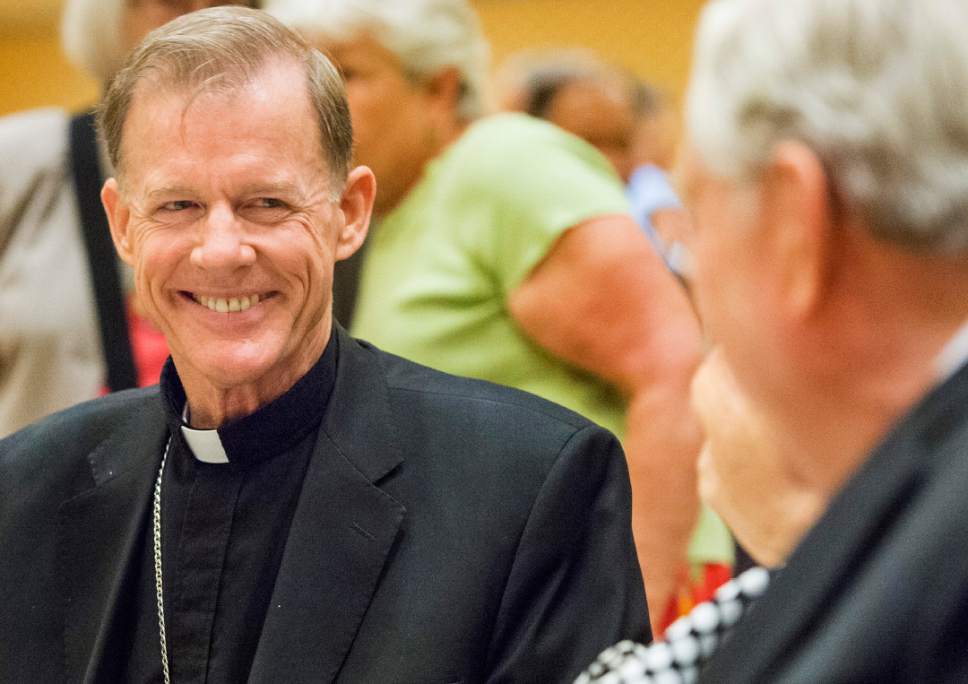This is an archived article that was published on sltrib.com in 2016, and information in the article may be outdated. It is provided only for personal research purposes and may not be reprinted.
In my years of ministering to individuals and families, I have walked the long journey through grief with the survivors of violent crime, those who were victims and those who lost family members to horrific acts. Healing from such trauma is neither easy nor quick. It is even more difficult when, through no fault of the family, the crime is replayed over and over in the media and the courts as a death sentence for the perpetrator is litigated, appealed and re-appealed for decades.
Sadly, prosecutors may lead families to believe that this prolonged suffering is required to bring justice to their loved one. Are we really saying, as a state that imposes the death penalty, that families must relive the horrific experience of their loved one's murder over and over again for 30 years while the death penalty appeals process plays out if they want justice? This is simply cruel and does little more than prevent families from healing while continually dredging up their resentment and rage as they wait impotently for "justice to be served."
In addition, the disingenuous argument that the death penalty alone brings justice does a disservice the vast majority of victims' family members for whom this penalty is never seriously on the table. Of the 15,696 murders committed in this country in 2015, 49 death sentences were handed down. It is impossible to believe that these 49 cases are the only instances in which families received justice.
We also cannot ignore the reality that, in some instances, not only is the death penalty not in the interest of justice, it is actually a miscarriage of justice. For the 156 death row inmates who have been exonerated of their crimes and released, often after wasting decades of their lives on death row, the imposition of the penalty had nothing to do with justice.
More likely, the penalty was about prosecutorial misconduct, racial bias or an inability to afford competent counsel. In these cases, family members of murder victims are left with no just resolution, and the wrongly accused must deal with the aftermath of their victimization by the very system that claims to pursue justice.
As support for the death penalty wanes across the nation, it is increasingly clear that justice is never really the priority in death penalty cases. Over the course of the last several legislative sessions in Utah, legislators, prosecutors and at least one former attorney general have admitted the use of the penalty here isn't about justice, it's about vengeance and making a prosecutor's job easier. With these motivations, Utah could and should abandon the death penalty.
Thankfully, prosecutors are not seeking vengeance very often in Utah. One would hope that is because they recognize that their commitment to justice should trump a knee-jerk desire for revenge.
Further, though prosecutors claimed in legislative hearings that they need the death sentence as a negotiation tool, I have to think there are very few in Utah's talented prosecution core who could not convince a guilty person to accept a plea without using the hammer of the death sentence for leverage. This is especially true when it is increasingly unlikely that the sentence will be imposed and carried out.
The moral and just resolution for violent crime is a prison term that renders the perpetrator unable to cause further harm, while giving him or her ample time to admit to their horrendous acts and seek reconciliation. The moral and just resolution would bring family members a final sentence that lets them focus on their loved one, rather than immortalizing the perpetrator. The moral and just resolution would not answer violence with more violence.
The death penalty in Utah has served its time. The penalty brings out the worst in us rather than highlighting our shared history of belief in a higher power that metes out justice while we mere mortals strive to achieve the important goals of protecting public safety, lifting up victims, and showing mercy to individuals who may not deserve it, because we wish to lead by example.
John C. Wester serves as archbishop for the Diocese of Santa Fe and is former bishop of the Diocese of Salt Lake City.



